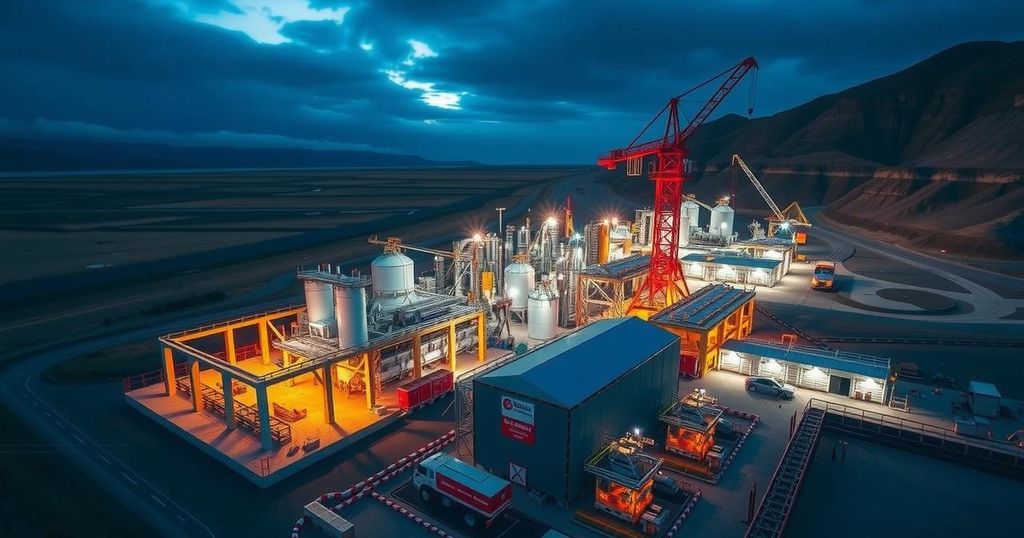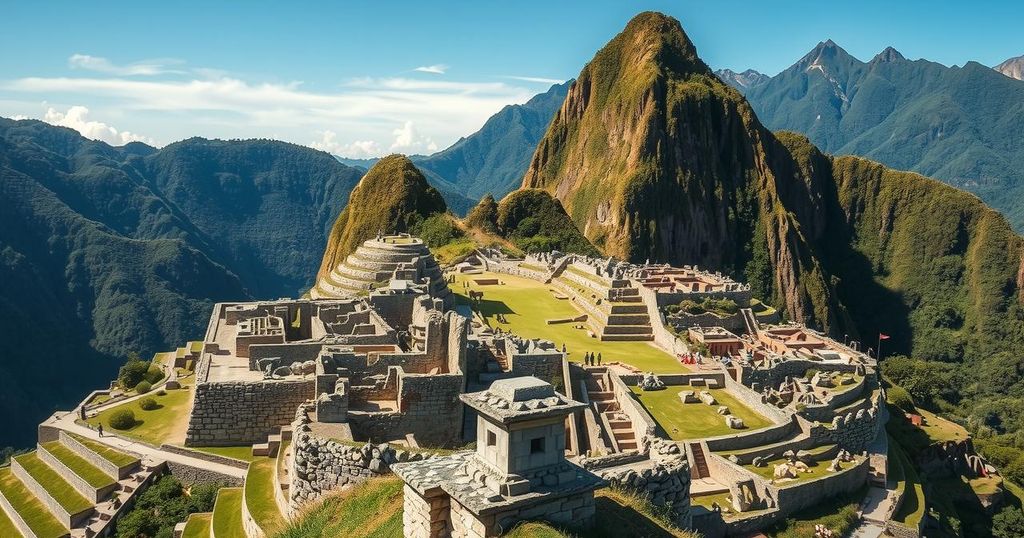Bolivia Secures $1 Billion Agreement with China for Lithium Production
Bolivia has signed a $1 billion deal with China’s CBC to establish two lithium carbonate production plants in Uyuni. The facilities will enhance Bolivia’s lithium production capabilities, positioning it as a significant player in the global lithium market amid increasing demand for electric vehicle batteries. This follows another previous deal with a Russian company and ongoing negotiations for additional contracts.
On Tuesday, Bolivia announced the signing of a substantial $1 billion contract with China’s CBC, a subsidiary of the prominent lithium battery manufacturer CATL, to construct two lithium carbonate production facilities in the southwestern region of the country. Bolivia’s state-owned enterprise, Bolivia Lithium Deposits (YLB), indicated that one plant will have an annual capacity of 10,000 tons of lithium carbonate while the other will produce 25,000 tons, both located in the expansive Uyuni salt flats.
Lithium, often referred to as “white gold,” plays a crucial role in the production of batteries for electric vehicles and mobile devices. With claims of possessing the largest lithium reserves globally, Bolivia is strategically positioning itself in the lithium market. During the ceremony, President Luis Arce emphasized the significance of this agreement, suggesting that it would enable Bolivia to influence the international price of lithium substantially.
This new partnership follows a previous arrangement made last year with Russia’s Uranium One Group, which is set to establish a $970 million lithium extraction facility in Uyuni as well. Both contracts, however, are pending approval from Bolivia’s parliament. Furthermore, President Arce disclosed that discussions are ongoing with the Citic Guoan Group from China regarding a potential third agreement, expressing hope for a swift resolution to these negotiations.
The announcement of this $1 billion deal between Bolivia and China’s CBC marks a significant milestone in Bolivia’s aspirations to capitalize on its rich lithium reserves. Lithium’s importance in the energy transition, particularly in the context of electric vehicles and renewable energy technologies, underscores the strategic value of such resources. Bolivia’s Uyuni salt flats are home to some of the most extensive lithium deposits in the world, which has drawn international interest and investment into the Bolivian lithium sector. This initiative aligns with growing global demand for lithium and aims to position Bolivia as a key player in the battery supply chain.
In conclusion, Bolivia’s recent $1 billion agreement with China’s CBC reflects an ambitious step towards harnessing the country’s lithium potential and establishing itself as a major contributor to the global lithium market. By developing its lithium resources, Bolivia not only aims to meet international demand but also to navigate the economic benefits of becoming an influential player in determining lithium pricing on a global scale. As negotiations continue with other international companies, the future of Bolivia’s lithium industry appears poised for expansion.
Original Source: www.france24.com




Post Comment